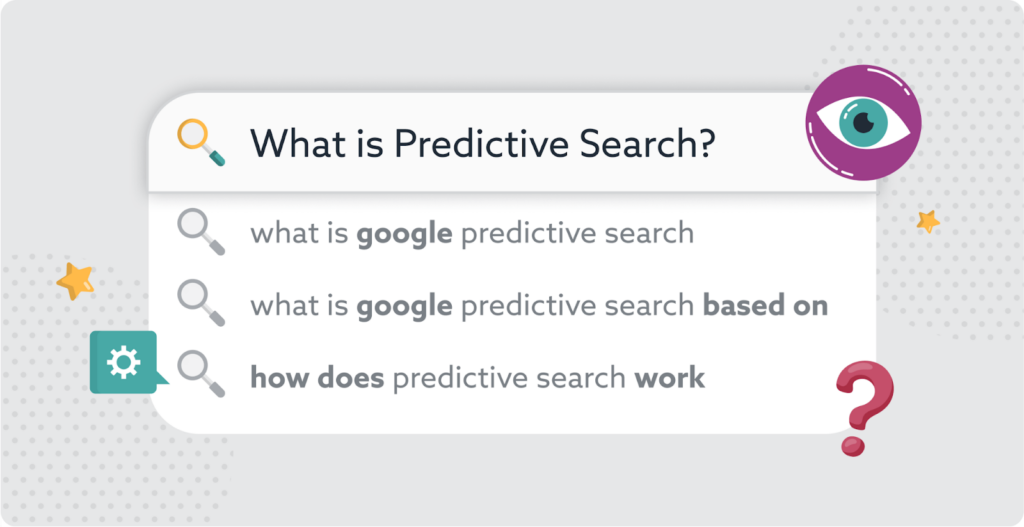How SEO Services Help Improve Google Rankings Faster
Introduction
Every business wants to rank higher on Google. After all, when your website appears on the first page of search results, you instantly gain more visibility, credibility, and customers. But here’s the truth—improving rankings isn’t just about sprinkling keywords into your website. It takes strategy, technical know-how, and consistent effort.
That’s where SEO services come in. In simple terms, SEO (Search Engine Optimization) is the process of optimizing your website so search engines can easily understand it and rank it higher. SEO services take this one step further by using proven strategies to accelerate your visibility on Google, helping your business rise above competitors faster than if you tried doing it alone.
Let’s break down what SEO services are, why they matter, and how they can help your business achieve higher rankings more quickly.
What Are SEO Services?
SEO services are professional strategies designed to improve your website’s search performance. These services combine technical expertise, content optimization, and authority-building tactics to ensure your site not only ranks well but also attracts the right audience.
See more: Why Food Safety Traceability Software Matters in 2025
Common SEO services include:
- Keyword research – Identifying the search terms your target customers are using.
- On-page SEO – Optimizing content, meta descriptions, and internal linking.
- Technical SEO – Enhancing site speed, crawlability, and mobile performance.
- Off-page SEO – Building authority through backlinks and mentions.
- Local SEO – Targeting geographic searches like “plumber near me” or “best dentist in Chicago.”
- Content marketing – Publishing blogs, guides, and videos optimized for search.
When done right, these services create a strong foundation that allows your website to climb Google rankings faster.
Why SEO Matters for Businesses Today
In today’s competitive digital marketplace, ranking high on Google is no longer optional—it’s essential.
Here’s why SEO matters:
- Most journeys begin with search: Nearly all buying decisions start with a Google query.
- Organic clicks beat ads: Users often trust organic results more than paid ads.
- Mobile-first behavior: With most searches happening on smartphones, SEO ensures your site is optimized for mobile.
- Competitor advantage: If your competitors are investing in SEO and you’re not, they’re capturing the leads you’re missing.
- Algorithm updates: Google constantly changes its ranking system, and SEO ensures your site keeps up.
Without SEO, your website risks being invisible—even if you have the best products or services.
Key Benefits of SEO Services
Investing in SEO services offers more than just rankings. It creates measurable, long-term value for your business.
1. Increased Traffic
SEO ensures your site gets in front of the right audience, driving more qualified visitors.
2. Faster Results
With expert strategies, SEO services can help your site climb rankings more quickly than trial-and-error efforts.
3. Better Lead Quality
SEO targets intent-based searches, meaning the people who find your site are already interested in your services.

4. Higher Credibility
Websites on the first page of Google are perceived as more trustworthy.
5. Strong ROI
Unlike paid ads that stop when the budget ends, SEO continues to deliver long-term results.
6. Improved User Experience
SEO services focus on site speed, structure, and navigation—factors that keep users engaged.
Types of SEO Services
Understanding the different types of SEO helps clarify how each contributes to faster rankings.
On-Page SEO
On-page SEO focuses on optimizing the visible elements of your website:
- Using keywords naturally in titles, headers, and content.
- Structuring content for readability and engagement.
- Internal linking to guide visitors to related pages.
Example: A bakery could optimize its menu page with phrases like “best cupcakes in Seattle” to rank for local searches.
Off-Page SEO
Off-page SEO builds your site’s authority through external signals:
- High-quality backlinks from trusted sites.
- Social shares and mentions.
- Listings in local directories.
Example: A law firm earns backlinks from reputable legal blogs, boosting credibility and ranking speed.
Technical SEO
Technical SEO ensures Google can crawl and index your site efficiently:
- Optimizing site speed.
- Ensuring mobile-friendliness.
- Fixing broken links and duplicate content.
- Implementing structured data for rich snippets.
Example: An e-commerce store improves page speed, reducing bounce rates and increasing rankings.
Local SEO
For businesses targeting specific regions, local SEO is crucial:
- Optimizing your Google Business Profile.
- Earning reviews from local customers.
- Adding city-based keywords to service pages.
Example: A dentist in Dallas ranks higher for “family dentist near me” by optimizing local SEO.
Content SEO
Content SEO ensures your website has fresh, relevant, and optimized material:
- Blog posts answering customer questions.
- Informational guides and how-to articles.
- Engaging videos and infographics.
Example: A fitness coach creates blog posts like “10-Minute Workouts for Busy Professionals” to rank quickly for niche queries.
How SEO Services Drive Business Growth Online
SEO isn’t just about faster rankings—it’s about sustainable growth.
- Attracts More Clients: Optimized websites rank for terms your audience is actively searching.
- Improves Conversions: Clear calls-to-action and user-friendly design turn visitors into customers.
- Saves Time: Experts know the right strategies to use, cutting down trial-and-error delays.
- Builds Long-Term Authority: Once established, strong rankings are easier to maintain.
Example: A small e-commerce store invests in SEO services. Within six months, their site ranks on the first page for “eco-friendly home products.” Traffic increases, sales rise, and they start competing with much larger brands.
Tips for Choosing the Right SEO Service Provider
Not every SEO provider is equal. Choosing wisely can determine how fast your rankings improve.
- Look for Experience: Providers with industry-specific knowledge deliver better results.
- Ask for Case Studies: Proven results show they know how to achieve rankings.
- Demand Transparency: A trustworthy provider explains strategies and shares reports.
- Customized Strategies: Avoid one-size-fits-all packages; your business needs tailored SEO.
- Realistic Expectations: Be wary of anyone promising #1 rankings overnight—SEO takes time.
- Focus on Both On-Page & Off-Page: A balance of both is key to long-term success.
Relatable Scenario
Imagine you’re a local roofing company. You rely on referrals, but new leads are slow. You invest in SEO services:
- Your website is optimized for “roof repair in Austin.”
- Local SEO puts your firm in Google’s map pack for “roofing near me.”
- Blogs about “Signs You Need a New Roof” start ranking quickly.
- Backlinks from home improvement sites strengthen authority.
Within months, calls for quotes double. Instead of waiting for word-of-mouth, your business is now visible to anyone searching online.
Conclusion
Ranking high on Google doesn’t happen overnight, but SEO services can speed up the process by applying proven strategies, technical expertise, and tailored solutions.
From on-page and off-page tactics to local and technical improvements, SEO is the foundation of digital visibility. More importantly, it ensures that when people search for businesses like yours, they find you—not your competitors.
Think of SEO not as an expense but as an investment. With the right SEO partner, your website can climb Google rankings faster, attract more qualified leads, and build long-term business success.
The sooner you start, the sooner your business will enjoy the benefits of higher rankings and sustainable growth.
Beginner’s Guide to SEO Optimalisatie: What You Need to Know
If you’re just getting started with SEO (Search Engine Optimization) in 2025, you’re in the right place. SEO optimalisatie is crucial for driving organic traffic to your website and ensuring it ranks high on search engine results pages (SERPs). However, with algorithms constantly evolving and new trends emerging, it can be overwhelming for beginners. This guide will walk you through the fundamental strategies that are still effective in 2025, including on-page and off-page SEO techniques. Whether you’re a business owner, blogger, or aspiring SEO professional, understanding these concepts is key to achieving long-term success online.
In this article, we’ll explore content optimization, backlink building, improving user experience (UX), mobile-first indexing, and EEAT (Experience, Expertise, Authoritativeness, Trustworthiness) — the SEO strategies that matter in 2025. Plus, we’ll touch on outdated techniques that no longer work, helping you avoid common SEO mistakes.
1. What Is SEO Optimalisatie and Why Does It Matter?
SEO optimalisatie is the process of optimizing your website so that it ranks higher in search engine results, driving organic traffic to your site. Essentially, SEO involves both technical and creative elements aimed at improving your website’s visibility on search engines like Google.
Why does SEO matter? Well, the vast majority of online experiences start with a search engine. So, if your website isn’t visible in the search results, you’re missing out on potential traffic, leads, and sales. SEO is your ticket to attracting the right audience at the right time.
SEO Basics
SEO can be broken down into two main categories: on-page SEO and off-page SEO. On-page SEO refers to anything you do on your website to improve its ranking, while off-page SEO focuses on strategies that happen outside your website to build authority and trust.
2. On-Page SEO: Getting Your Website Ready for Search Engines
On-page SEO is about optimizing elements within your website to make it more search-engine friendly. This includes everything from the content you create to the way your site is structured. In 2025, on-page SEO is more important than ever, especially as Google’s algorithms become smarter and more user-focused.
Content Optimization: Quality Over Quantity
Content is still king in SEO. However, today’s SEO isn’t just about keyword stuffing. Google’s algorithms focus more on the context and quality of content rather than the sheer number of times a keyword appears.
Tip: Create content that answers your audience’s questions, provides valuable insights, and is engaging. Aim for long-form, high-quality content that satisfies search intent and addresses the needs of your target audience.
Best Practices:
- Use related keywords and semantic variations.
- Focus on answering user queries and providing useful information.
- Ensure your content is easy to read, well-structured, and engaging.
Meta Tags and Headings
Meta tags (including title tags and meta descriptions) play a key role in on-page optimization. These elements help search engines understand the content of your page and encourage users to click through to your website.
Tip: Use clear, concise, and engaging title tags that include relevant keywords. Write compelling meta descriptions that encourage clicks while accurately describing the content.
3. Off-Page SEO: Building Your Website’s Authority
Off-page SEO is equally important in boosting your rankings. This refers to activities you do outside of your website, such as acquiring backlinks and building brand authority. Backlinks, in particular, are one of the most important ranking factors for Google.
Backlink Building: Focus on Quality, Not Quantity
Gone are the days of buying hundreds of low-quality backlinks. In 2025, search engines like Google care more about the quality of the links pointing to your website than the number of links you have.
Tip: Focus on earning high-quality backlinks from authoritative sites in your industry. Guest blogging, content partnerships, and influencer outreach are great ways to earn valuable backlinks.
Best Practices:
- Reach out to industry influencers for collaborations.
- Create content that naturally attracts backlinks (e.g., in-depth guides, research studies, etc.).
4. User Experience (UX): A Crucial Ranking Factor
Google’s Core Web Vitals and user experience metrics are becoming increasingly important for SEO rankings in 2025. The better the user experience, the more likely your site is to rank well.

Speed and Mobile Responsiveness
Page speed and mobile responsiveness are critical ranking factors. A slow website or a site that doesn’t work well on mobile devices will result in higher bounce rates, which negatively impacts your SEO.
Tip: Use tools like Google PageSpeed Insights to test your site’s performance and make necessary improvements. Ensure your site is fully responsive and provides a seamless experience on both mobile and desktop.
Easy Navigation and Design
A well-designed website with easy-to-use navigation will keep visitors engaged and reduce bounce rates. A good UX encourages users to explore more pages on your site, increasing the chances of conversions and improving your SEO.
Tip: Simplify your website’s navigation, use clear calls to action, and ensure a clean, organized layout.
5. EEAT: Establishing Expertise, Authoritativeness, and Trustworthiness
EEAT (Experience, Expertise, Authoritativeness, and Trustworthiness) is becoming increasingly important for SEO, especially for websites in sensitive fields like health, finance, and law. Google rewards content that demonstrates expertise and trustworthiness.
Building Trust with Quality Content
To rank well, your website needs to be seen as an authority in your field. Google looks for websites that provide reliable, high-quality information.
Tip: Include author bios that highlight your qualifications and expertise, cite reputable sources, and regularly update your content to keep it accurate and relevant.
6. Outdated SEO Techniques to Avoid in 2025
As SEO evolves, certain techniques that worked in the past are now outdated and ineffective. Knowing which strategies to avoid can save you time and help you focus on what really works.
Keyword Stuffing
Keyword stuffing was once a common practice, but it’s now a sure way to get penalized. Google’s algorithms now prioritize natural, helpful content rather than keyword-heavy content.
Tip: Avoid overusing keywords in your content. Focus on writing naturally while incorporating relevant keywords in a way that flows well.
Low-Quality Link Building
Buying backlinks or participating in link farms was once a common practice, but today, this can harm your site’s reputation and rankings.
Tip: Focus on earning natural, high-quality backlinks from reputable sources rather than resorting to questionable tactics.
7. Summary & Actionable Checklist
To effectively optimize your website and boost your traffic in 2025, follow this actionable checklist:
- Content Optimization: Focus on answering user intent and creating valuable, high-quality content.
- Backlink Building: Build high-quality, relevant backlinks from authoritative websites.
- Mobile Optimization: Ensure your website is mobile-friendly and fast-loading.
- Improve User Experience: Focus on speed, navigation, and design to enhance user experience.
- EEAT: Demonstrate your expertise and authority in your field to build trust with users and search engines.
- Avoid Outdated Tactics: Steer clear of keyword stuffing and low-quality link-building practices.
By following these strategies, you’ll be on your way to improving your website’s search rankings and driving more organic traffic.
Meta Description (150-160 words):
Learn the fundamentals of SEO optimalisatie in this beginner’s guide for 2025. Discover effective strategies like content optimization, backlink building, mobile-first indexing, improving user experience (UX), and focusing on EEAT (Experience, Expertise, Authoritativeness, Trustworthiness). Avoid outdated practices like keyword stuffing and low-quality link building. Whether you’re a marketer, blogger, or SEO professional, this guide provides actionable tips to help you boost your website’s rankings and drive more organic traffic.
releated:Content Consistency Practice is Key to Your SEO Success
Content Consistency Practice is Key to Your SEO Success
While this topic is crucial to the success of your SEO ranking efforts, many businesses launch their website without even realizing the importance of getting the services of an SEO agency for good search engine ranking.
By definition, Content consistency implies adding new information on a regular basis, which is a certain way to attract readers and grow your audience.
The caveat is that content is equally as vital as digital marketing activities. The issue that everyone wants to be answered, though, is whether or not we can keep the blog’s content consistent, and the answer is that it must. Yet how?
Increase your website’s worth by developing the most effective SEO plan possible with the help of P1 SEO specialists.

Consistent Blogging
If you write on a regular basis, Google will reward you with a higher search engine rating. When it comes to search engine optimization, the golden rule according to Google’s algorithm is consistency and regularity.
Today’s readers are looking for information that will always be relevant, and this need is a strong incentive for writers to keep up with their work on a consistent basis while also providing readers with material that will keep their attention.
Nonetheless, this is not a universal law; it really depends on the field you choose. Writing in the specified context and updating links are both necessary for success. The more frequently you update your material, the more people will engage with it.
Having a blog can simplify the process of building internal connections and acquiring external Backlinks. Both external connections and internal links can be made in the blog.
The best way to reach people is to write about something that has already been written about and then link to it. Many different backlinking technologies are available to assist SEO marketers in establishing an internal linking structure, facilitating site navigation, and establishing a hierarchy.
Increase exposure for your brand
You need to establish your identity as a blogger once you’ve gotten started. And blogs are essential for this purpose. One or two well-written posts every week should be enough to keep readers engaged and learning from your site.
Fill your blog with informative posts on the features and benefits of the goods and services you offer.
There are a variety of things you can say about your offerings in your content that will ensure your readers are obtaining the facts they need to make a buying choice. If you run a blog and persuade people to frequent it, your website will eventually see an uptick in traffic.

Create a follower base and establish trust with your readers
Building trust with your audience is essential to your business and SEO efforts. Maintaining a consistent tone and publishing schedule endears your work to your audience and encourages them to return for more.
Another benefit of maintaining continuity is an increased likelihood of REO (Referral Engine Optimization). Keeping the postings fresh means attracting new readers through word of mouth.
The more you provide fresh material, the more doors will open for you, and people will start recommending you to their networks. Increasing your site’s search engine rankings might be as simple as getting to know your neighbors.
Preserve Your Position in the Market.
Maintaining your niche in the face of increasing competition is a compelling argument for keeping up content production. Your competitors’ blog and SEO content development efforts should motivate you to increase your own spending in these areas.
Eighty percent or more of marketers across the world and in Australia are using content and making it their top focus, according to studies.
Blogs are the most popular way for B2B marketers to reach out to potential consumers, with 96% relying on such material. There is no denying the reality that today’s consumers rely heavily on the Internet for research before purchasing any goods or services.
Thus, you will definitely succeed if you consistently provide new material to your site.

Promotes Lead Generation for Businesses
You may increase interest in your wares by regularly updating your blog with new and useful information. You’re making connections and establishing your name. These “call to action” phrases generate leads for the advertising group. A blog post that inspires readers to go over to your landing page is doing its job.
There is a plethora of evidence supporting the significance of blog postings and the effect it has on search engine optimization. Whenever you engage with your brand through content creation, you increase exposure to and interest in your business.
P1 SEO Company
We are SEO agency with professional SEO services and a strategic understanding of everything you may need to drive your website’s organic traffic and a successful SEO campaign. There is no business in this present time that doesn’t need a digital marketing agency, search engine marketing, or SEO agency support for an effective SEO strategy.
The extensive background of our SEO agency in Australia gives us confidence that your website will thrive under our SEO company’s expert guidance. We can detail a variety of social media strategies that will increase your site’s traffic.
When you’ve decided on a plan for search engine optimisation services, our staff will go to work on it in accordance with the parameters of that plan. More than that, we think creatively about how to address any issues raised by our customers.
We also provide advice on the best SEO cost that suits your budget and local SEO advice on how to organize your website so that it ranks highly in search engine results, including things like link building, on-page SEO, technical SEO, and any other measures you may need to take.
No SEO companies or SEO specialists do it better than we do.
SEO Agency Best Practices for Predictive SEO
The application of predictive SEO might completely alter the course of your company’s online visibility. In this article are the four guidelines we recommend following for the most successful predictive search results.
Most people would leap at the chance to know what would be popular in the future. Predictive SEO agencies allow businesses to capitalise on future trends by creating material about them in advance.
What Exactly is Predictive SEO?
Predictive search engine optimisation involves anticipating users’ information needs and meeting them before they even know they have them. If you want to forecast the future, you need to look at the past and apply what you know today.
You can improve your content and page rankings in the long run by using predictive SEO to plan ahead.

How to use predictive SEO to your advantage
Observe these guidelines for effective predictive search:
Review existing information
Predictive search rankings need to look at historical data using technologies like Google Analytics. Your historical data will shed light on how things have operated in the past, allowing you to make educated guesses about the future.
The information gleaned from this analysis may then be used to guide future SEO strategies.
Take a look at what you’ve already put out there, for instance. In order to improve your content marketing strategy and generate more leads in the future, you need to examine your content.
After looking at the numbers, you conclude that blog articles using videos are the most effective at bringing in new customers. You may utilise this information to influence future efforts by determining whether or not there is a connection between video and leads.
Plan for future content themes
Content production is a vital part of search engine optimisation.
In order to climb the search engine rankings and attract targeted visitors, you need quality content. Predictive SEO relies heavily on looking into the future to identify content themes that will help you boost traffic.
By analyzing metrics like pageviews and CTR, you can determine what works best for your audience. Likewise, you might examine the content’s theme to determine if there are any shared underpinnings.
Let’s pretend, for the sake of argument, that you run a wedding planning company. You look at historical data from all of your content kinds and determine that your blog posts do better than anything else. Based on this data, you’ve concluded that increasing your blog output will result in a noticeable rise in site visitors.
You decide to dive further and analyze data for each blog post to see which ones are most successful. When you look at the numbers, you see that most of your readers are interested in reading about how to pick a wedding theme and colour scheme.

Accordingly, you may utilise this data to your advantage by focusing on wedding-themed content creation, which you believe has the most potential for success.
The time of year may also be used as a predictor of when it will be most effective to publish new material. For this reason, you may discover that August and September are the most successful months to share material related to rustic weddings.
In addition to increasing your efficiency, this knowledge may assist you to determine the optimal time of day on which to release new material.
You may improve your approach by a significant margin if you take the time to predict future content subjects. Create content that really hits home with your target demographic, and you’ll see a rise in both audience participation and your site’s search engine rankings.
Identify an appropriate data collection method
For predictive SEO to yield positive results, the correct data collection tool is essential.
For instance, MarketingCloudFX is a powerful marketing tool for amassing insights. You may monitor the effectiveness of your SEO and content using this tool and use that data to inform your future SEO efforts.
The tool’s CompetitorSpyFX function is very useful. You can evaluate where you are in relation to the competition and what you need to do to improve your ranking using these forecasts. Such data may be used to improve your predicted SEO and help you produce content that does double duty by both outranking the competition and keeping readers interested.
You may also track your leads, traffic, and search engine ranking with this application. Using this information, you may make educated guesses about the future of your SEO strategy.
Take advantage of Google Trends
It’s important to make well-informed judgments with your data if you want to show up in predictive search results. If you want to show up in people’s predicted searches, Google Trends is an excellent tool to employ.
By typing in search phrases, you may see when a certain topic is trending, how many people are interested in it and more using Google Trends. Information like this can help you improve your marketing and your overall strategy.
Let’s revisit the scenario with the wedding coordinator. Analyzing the data, you determine which content formats are most successful and which themes are likely to be popular in the future.

Google Trends may now be used to determine the optimal time for content publication.
Looking at historical data for this term reveals that it is most popular between the end of the year and the middle of the new one. Thus, if you’re working on a blog article on rural ceremony locations, scheduling its release around that time will give you the most chance of attracting readers interested in the topic.
You may use this instrument to great effect with the information you have collected. You can improve your predictive SEO strategy by combining your client data with Google’s data.
Initiate Predictive SEO Procedures
Utilizing predictive SEO, your company may increase the long-term success of its SEO efforts. Insightful campaigns with solid data backing may be developed with your assistance, boosting the efficiency and effectiveness of your business.
If you’re considering streamlining your digital marketing or SEO operations, here’s a tool that might help: https://vaworldoutsourcing.com/services/virtual-assistant
P1 SEO Company
We are SEO agency with professional SEO services and a strategic understanding of everything you may possibly need to drive organic traffic for your website and a successful SEO campaign. There is no business in this present time that doesn’t need a digital marketing agency, search engine marketing, or SEO agency support for an effective SEO strategy.
The extensive background of our SEO agency in Australia gives us confidence that your website will thrive under our SEO company’s expert guidance. We can detail a variety of social media strategies that will increase your site’s traffic.
When you’ve decided on a plan for search engine optimisation services, our staff will work on it according to that plan’s parameters. More than that, we think creatively about how to address any issues raised by our customers.
We also provide advice on the best SEO cost that suit your budget and local SEO advice on how to organise your website so that it ranks highly in search engine results, including things like link building, on-page SEO, technical SEO, and any other measures you may need to take.
No SEO companies or SEO specialists do it better than we do.
Related: Content Consistency Practice is Key to Your SEO Success


